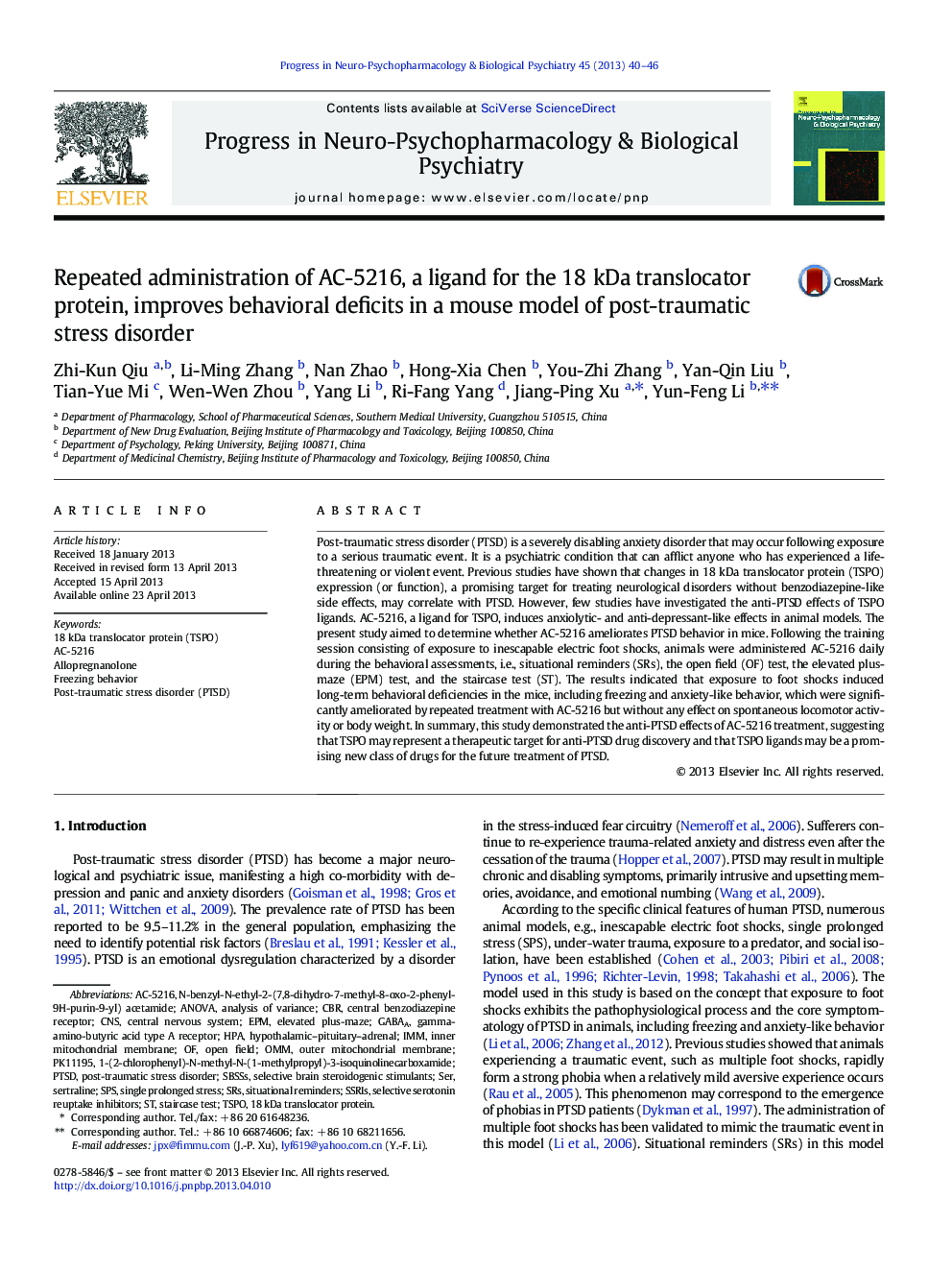| Article ID | Journal | Published Year | Pages | File Type |
|---|---|---|---|---|
| 5844792 | Progress in Neuro-Psychopharmacology and Biological Psychiatry | 2013 | 7 Pages |
Highlightâ¢Foot shocks induce behaviorally-enhanced fear response and anxiety in mice.â¢AC-5216 alleviated the contextual freezing behavior in PTSD mice.â¢AC-5216 did not affect locomotor activity in PTSD mice.â¢AC-5216 ameliorated PTSD-associated anxiogenic-like behavior in mice.
Post-traumatic stress disorder (PTSD) is a severely disabling anxiety disorder that may occur following exposure to a serious traumatic event. It is a psychiatric condition that can afflict anyone who has experienced a life-threatening or violent event. Previous studies have shown that changes in 18Â kDa translocator protein (TSPO) expression (or function), a promising target for treating neurological disorders without benzodiazepine-like side effects, may correlate with PTSD. However, few studies have investigated the anti-PTSD effects of TSPO ligands. AC-5216, a ligand for TSPO, induces anxiolytic- and anti-depressant-like effects in animal models. The present study aimed to determine whether AC-5216 ameliorates PTSD behavior in mice. Following the training session consisting of exposure to inescapable electric foot shocks, animals were administered AC-5216 daily during the behavioral assessments, i.e., situational reminders (SRs), the open field (OF) test, the elevated plus-maze (EPM) test, and the staircase test (ST). The results indicated that exposure to foot shocks induced long-term behavioral deficiencies in the mice, including freezing and anxiety-like behavior, which were significantly ameliorated by repeated treatment with AC-5216 but without any effect on spontaneous locomotor activity or body weight. In summary, this study demonstrated the anti-PTSD effects of AC-5216 treatment, suggesting that TSPO may represent a therapeutic target for anti-PTSD drug discovery and that TSPO ligands may be a promising new class of drugs for the future treatment of PTSD.
